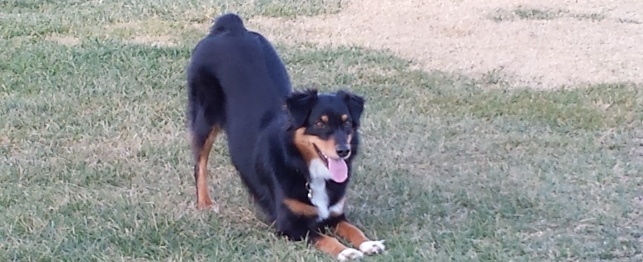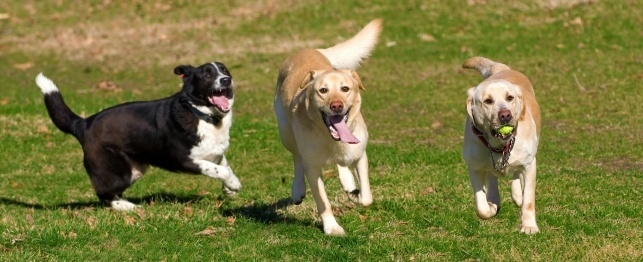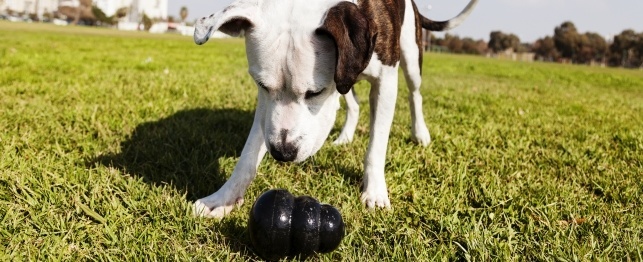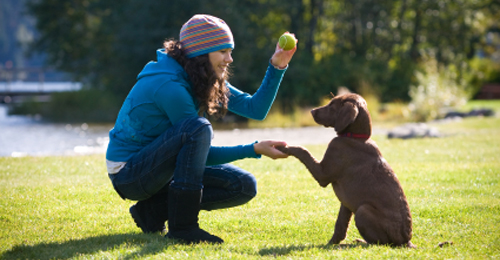When you get ready to leave your house, does your dog act very strangely? Does he or she bark, whine and scratch to try and get to you? This is probably a symptom of separation anxiety and millions of dogs experience it. Your dog will experience fear, insecurity and nervousness when you are leaving and while you are gone. They may also resort to self mutilating, destructive behavior, trying to escape in order to find you and more.
There's good news for pet owners who are dealing with separation anxiety. You can actually help your dog relieve some of the stress and anxiety by training him or her to deal with their feelings. Although medicine is needed for some animals, you should try behavior modification first. This condition is an actual medical condition that will worsen with time. It will not simply get better on its own. Take your dog to see the veterinarian in order to have an exam done to be sure that nothing else is wrong with your dog. He or she may have some valuable advice as well.
You don't want to make the problem worse, either. If you spoil your dog and give him undivided attention, he will be much worse off when you leave. You need to teach the dog that he or she can self soothe and will be just fine without you. So, praise your dog when he or she plays by themselves. You should give your dog attention only when you're ready to give him or her attention. Do not respond when your dog demands attention. If they climb on you, simply push them off without looking in their eyes. Then, when you are ready to give your dog attention, call him or her over and give your dog some attention. You should also ignore your dog when he or she barks or cries for you. You want to demonstrate that you are the leader!
Exercise is key for a healthy, happy and well-adjusted dog. Try about 15 minutes of good exercise each day and before you leave. You want to allow your dog time to tire himself or herself out. Being exhausted will keep your dog calmer. You also want to get your dog accustomed to you leaving, so that he or she will not feel as stressed. Give your dog attention for about 20 minutes before you leave. This will help him deal with your absence.
You can try giving your dog access to only one part of your home and as the behavior changes, you can give him or her a larger part of the house. A baby gate will do the trick for most dogs. Try to leave him with some treats and toys when you leave and this will help him stay occupied. Bones, squeak toys, etc. Anything like that should work. Record yourself talking and he can listen to it while you're gone. Play it while you're there so that he or she becomes familiar with it. Pick up the things that your dog can get into and make sure that nothing's within paw reach. Spray other items with a bitter so that your dog will immediately leave them alone.
Separation anxiety is difficult to deal with, but through behavior modification, you should be able to get rid of the negative behavior and calm the fears within your dog that is causing them. The key is to have patience and believe in your dog!

 Playing Charades with Your Dog
Playing Charades with Your Dog
Playing Charades with Your Dog
Playing Charades with Your Dog
 Tips for Keeping Your Dog Safe at the Dog Park
Tips for Keeping Your Dog Safe at the Dog Par
Tips for Keeping Your Dog Safe at the Dog Park
Tips for Keeping Your Dog Safe at the Dog Par
 How To Use Vibration Dog Training Collars
All dogs need training at least, no matter how smart the do
How To Use Vibration Dog Training Collars
All dogs need training at least, no matter how smart the do
 Commercial Brain Games Challenge Your Dog
Commercial Brain Games Challenge Your Dog
Commercial Brain Games Challenge Your Dog
Commercial Brain Games Challenge Your Dog
 Teddy Bear Dog
Due for this, the actual who invests in professional canine
Teddy Bear Dog
Due for this, the actual who invests in professional canine